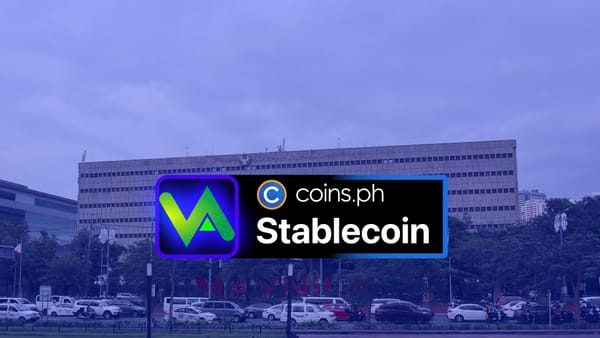
Philippines Central Bank Approves Coins.ph Stablecoin PHPC
The Philippines central bank, Bangko Sentral ng Pilipinas (BSP), has recently approved a pilot program for PHPC, a stablecoin pegged 1:1 to the Philippine peso, in collaboration with crypto wallet provider Coins.ph. This move aims to explore the potential of a digital currency tied to the country's fiat currency, with the primary objective of facilitating faster and more cost-effective remittances.
The pilot project, approved under BSP's Regulatory Sandbox Framework, will see Coins.ph maintaining cash reserves in pesos equivalent to the circulating supply of the PHPC stablecoin within the sandbox environment. The pegging of the stablecoin to the local currency is intended to ease the transition between PHPC and physical fiat currencies.
The upcoming sandbox testing phase will serve as a real-world trial of the PHPC stablecoin and its impact on the local fiat ecosystem. Potential applications for PHPC include domestic and cross-border payments, trading with other virtual assets, hedging against market volatility, and providing collateral and liquidity in decentralized finance (DeFi) applications.
The results of the trials will play a crucial role in determining the stablecoin's readiness for broader adoption. However, a formal public deployment of PHPC will be subject to final evaluations and approvals by the central bank. The duration of the testing phase can range from three to 12 months, depending on the complexity of the project, as per local regulations.
This initiative is not the first of its kind in the Philippines. In July 2019, UnionBank, a local commercial bank, introduced PHX, a payments-focused stablecoin pegged to the Philippine peso, to promote financial inclusion and support BSP's digital financial inclusion agenda. PHX, like PHPC, offers seamless redemption for pesos, which are then credited back to users' UnionBank accounts.
The Philippines' efforts to integrate virtual assets and stablecoins into its financial system come at a time when the country is looking to improve financial inclusion, particularly for the unbanked population. Remittances play a significant role in the Philippine economy, with the country being one of the top recipients of remittances globally.
With 44% of the adult population in the Philippines estimated to be unbanked in 2021, stablecoin-based remittances offer a promising solution to promote financial inclusion. Traditional remittance channels often involve high fees and lengthy transaction times, posing challenges for those without access to formal banking services.
Leveraging stablecoins, remittance providers can offer near-instant, low-cost transactions, enabling the unbanked to receive funds from abroad more efficiently. The use of virtual assets also eliminates the need for intermediaries, potentially reducing remittance costs and increasing the amount of money received by beneficiaries.
Learn more about Virtual Assets for the Unbanked
The BSP's approval of the PHPC stablecoin pilot program is a significant step towards embracing financial innovation while ensuring the integrity and stability of the financial system. The central bank recognizes the potential of virtual asset systems to revolutionize the delivery of financial services but also acknowledges the associated risks, such as money laundering, terrorist financing, and proliferation financing.
As the Philippines continues to explore the use of virtual assets and stablecoins, the country's securities regulator is set to unveil a regulatory framework for crypto assets and trading by the latter half of 2024. The upcoming cryptocurrency guidelines aim to regulate trading within the Philippines, prioritizing investor protection.
The developments in the Philippines reflect a growing trend among countries seeking to keep pace with innovations in financial technology and adapt to the digitalization of financial services. The BSP's controlled trials of the PHPC stablecoin represent a significant step in strengthening the country's financial infrastructure and promoting financial inclusion, particularly for the unbanked population.
As the pilot program progresses, it will be crucial to monitor its impact on the local fiat ecosystem, as well as its potential to facilitate faster and more cost-effective remittances. The success of the PHPC stablecoin could pave the way for wider adoption of virtual assets and stablecoins in the Philippines, ultimately contributing to the country's goal of greater financial inclusion and a more efficient financial system.